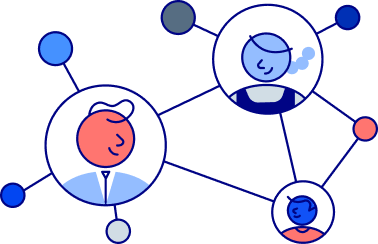Moving to the U.S. can open up a life of new opportunities and possibilities. It is no wonder that many international students seek to study and live in the U.S. International students can choose majors ranging from liberal arts programs to STEM majors. While each major has its own benefits, STEM majors are especially well-known for having strong job opportunities and high salaries, two key reasons that should motivate international students to strongly consider pursuing a STEM major.
What is STEM?
STEM stands for science, technology, engineering, and math. Biology, computer science, mechanical engineering, and statistics are some examples of the many majors considered to be STEM. It is well-suited for those who are talented in math and science subjects, but can be successfully completed by anyone who is willing to work hard. While generally considered more difficult and intensive than many other programs, STEM majors can be a key way for international students to stay in the U.S. after they graduate.
STEM Opportunities in the U.S.
The U.S. has opened up more pathways and opportunities for STEM majors than other majors due to STEM’s importance as a field. Professionals, researchers, and entrepreneurs working within STEM have developed new technologies and innovations, and have started world-famous companies. The U.S. wants to attract foreign talent to help it maintain its global leadership in technology and science, and continue to grow its pool of STEM-related workers.
To help solve the shortage of STEM majors, the U.S. has implemented new programs focused on finding more international students for STEM programs. For instance, in 2015 President Obama signed the STEM Education Bill into law, which recognizes the STEM field at the federal level and helps international students with STEM degrees go through the green card process easier. Additionally, in 2018 the National Science and Technology Committee on STEM Education published a five-year strategic plan for STEM education in the U.S.
Most importantly, the U.S. government supports international students studying STEM in one key way: Optional Practice Training (OPT). While any international student, regardless of major, can take advantage of OPT, STEM majors are granted an additional 24 month extension. That is an extra two years international students can stay working and living in the U.S.
The Benefits of Studying and Working in STEM
STEM majors are more intensive than most, but can bring many benefits for international students.
- Sponsorship: Many international students seek to obtain employer sponsorship so they can stay in the U.S. after they graduate from school. Because of a domestic talent shortage within the U.S., international STEM students have a higher chance of gaining employer sponsorship and being able to legally live in the U.S. after they graduate.
- Industry growth: Students with STEM-related majors, especially those involving technology, are in demand by companies across the world. While still competitive, STEM majors can gain employment easier than majors not in demand, as technology is a field that is growing globally as many countries continue to develop and modernize.
- Higher salaries: STEM-related jobs often command higher salaries than other professions. Employers are willing to pay high wages for talent as demand continues to grow. For example, the U.S. Bureau of Statistics published in 2017 that the national average wage for all STEM occupations is $87,750– almost double the average for non-STEM jobs.
Final Thoughts
With all the benefits, it is worthwhile for international students to research their options and consider STEM majors as they plan their educational career. Although they come with a higher workload and intensity, STEM majors possess higher wage opportunities, increased potential to stay in the U.S., and a growing worldwide demand for their skills. To search STEM job opportunities for international students in the U.S., log on to Interstride now.























